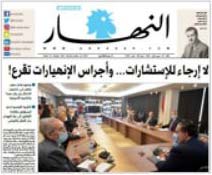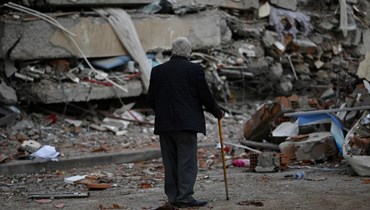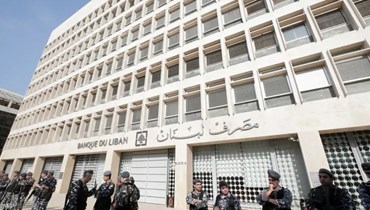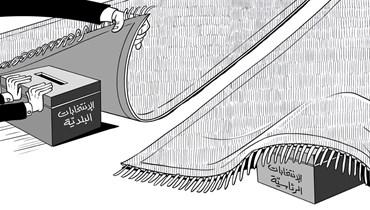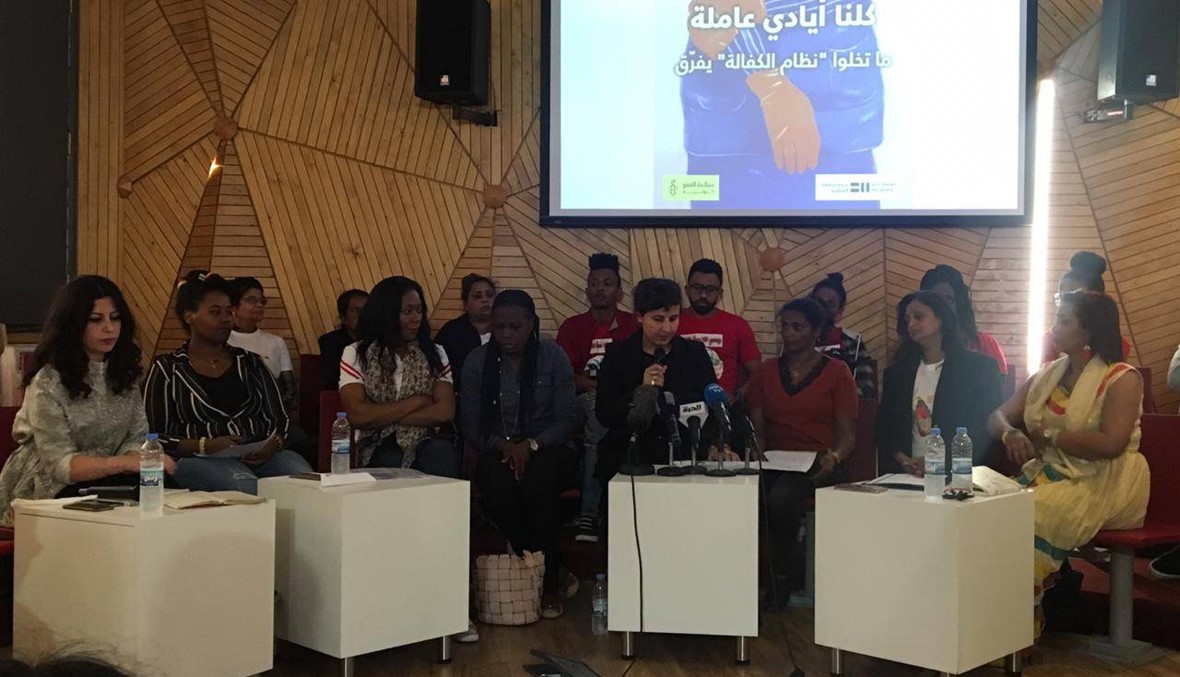Domestic workers gather at Beit Beirut to tell their tales of abuse
BEIRUT: Despite the protests that took place to abolish the Kafala system, domestic workers in Lebanon are still suffering under that law. Granting them the rightful opportunity to speak up and tell their stories, Beit Beirut hosted a number of domestic workers to hear their side of the story.
On Wednesday, several female migrant domestic workers gathered at Beit Beirut Museum in Sodeco to tell their stories of abuse and mistreatment to a crowd of activists and supporters.
The event, organized by Amnesty International, the Anti-Racism Movement and the Migrant Communication Center, was a cry for help from the heart of the migrant community.
Indeed, Amnesty International’s latest report, “Their House is My Prison: Exploitation of Migrant Domestic Workers in Lebanon," which interviewed 32 domestic workers, documented the shocking abuse they undergo at the hands of their employers under the “kafala” system, which gives employers the right to exploit their domestic workers.
Heba Morayef, Amnesty International’s Middle East and North Africa Director said in a press release: “It is outrageous that successive Lebanese governments have turned a blind eye to the catalogue of abuses that migrant domestic workers are being subjected to in their place of employment.”
Along those lines, a representative of Amnesty International added that “the testimonies of the domestic workers are horrific,” citing the “long working hours that go beyond 18 hours, denying them rest, food, vacations, monthly salaries, and medical attention.”
She then proceeded to mention that Labor Minister Camille Abousleiman had announced the creation of a committee to reform Lebanon’s labor law and “break” the country's kafala system.
Next, it was time for the guests of the event to tell their stories, which marked the most important part of the event.
Harek, an Ethiopian domestic worker, started telling her story by saying: “Many of us are told that we will work on a desk behind a computer or that we will work in a nursery. We’re not told that our employers will steal our salaries for three months, or that we will work long hours, sleep on the floor and suffer abuse.”
The second speaker was a Sri Lankan lady named Tania who has been in Lebanon for 27 years, and has encountered various forms of abuse. Like Harek, she too was told that she was going to work as a secretary when she first came to Lebanon, only to find herself a domestic worker.
She said: “We have nowhere to turn. If we went to the police with no papers, they treat us like criminals with no rights to a lawyer. It’s our word against the employer’s; and who do you think they will believe?”
Hirut from Ethiopia said that domestic workers need a government that protects them by keeping an eye on the agencies that bring them to Lebanon. She added that domestic workers need to understand the terms of the contract they are signing, and that there needs to be a ministry that investigates the causes of suicide.
After that, an interactive Q&A session took place with several members of the audience coming forward and sharing their own stories and opinions. The members of the audience were asked to sign a petition for abolishing the Kafala law, which they did, and a showcase of Ethiopian hand-made designs and Sri Lankan food was presented in the main hall.
This event was organized in conjunction with the launching of the Amnesty International campaign for abolishing Kafala. Sahar Mandour, Amnesty International’s researcher on Lebanon and Jordan said: “This project started in July 2017. Since then, we’ve placed the rights of migrant domestic workers as our priority.”


 اشترِك في نشرتنا الإخبارية
اشترِك في نشرتنا الإخبارية


